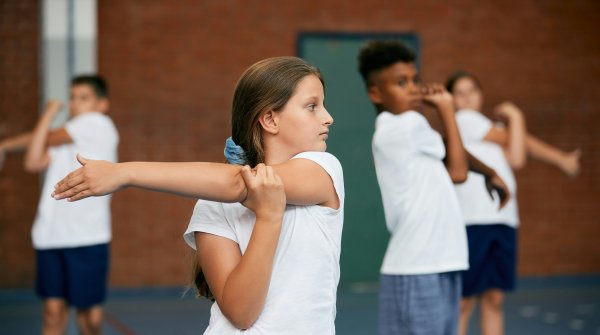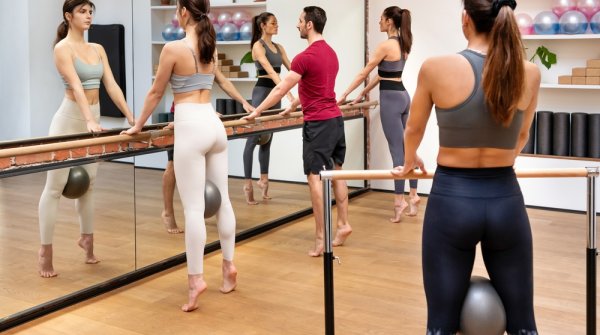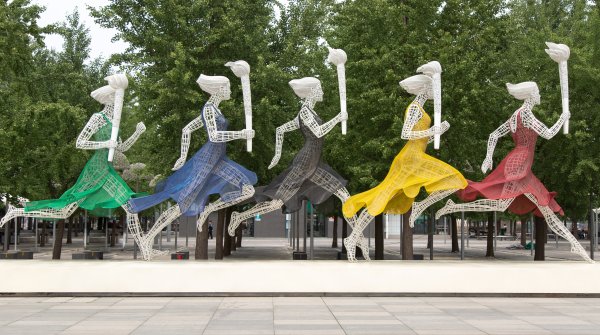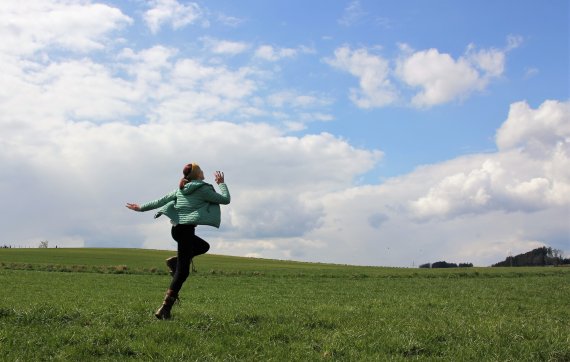
Dr. Manuel Föcker is a senior consultant at the Department of Child and Adolescent Psychiatry, Psychosomatics and Psychotherapy at Münster University Hospital. Together with sports scientist Dr. Matthias Marckhoff, he investigated the effects of the Corona pandemic on the physical activity and psychological well-being of adolescents between the ages of 11 and 17. Their findings: sports and exercise have plummeted, with screen time on the rise. Nearly a quarter no longer exercise at all. Alarming, because their study also showed: At the same time, the psychological well-being of the children deteriorated.
In an interview with ISPO.com, Föcker and Marckhoff explain what role exercise plays for the mental health and learning development of children, what exercise motivators can be, and how sport positively influences the child's psyche - also for the future.
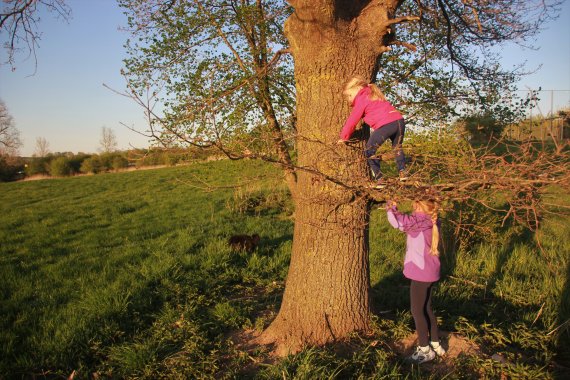
ISPO.com: Dr. Marckhoff and Dr. Föcker: What role does regular exercise play in children's mental health?
Marckhoff: Exercise, play and sport influence children's mental health on three levels:
- on a biological level, exercise promotes the child's neuronal development and has a positive effect on various brain functions.
- on a psychological level, experiences of self-efficacy and competence promote a positive self-concept in the child.
- on a social level, sport is an almost inexhaustible field of experimentation for personality development.
How can you imagine the effect on the brain in more concrete terms?
Föcker: Numerous studies indicate that physical activity and exercise promote the development of various brain regions via an increased release of neuronal growth factors. This leads to improved cell proliferation, i.e. improved cell division and growth. Depending on the brain region, these growth effects can have a positive impact on cognitive performance, executive functions and, closely related to this, emotional regulation processes. Due to the high adaptability, the so-called neuroplasticity of the brain in childhood and adolescence, sport and exercise seem to have a particularly strong effect in these phases of life.
So how does sport specifically strengthen our children, especially in light of the current corona pandemic?
The question of how well a child gets through crises depends largely on the coping resources available to them. Sport and exercise strengthen these resources because they...
- act as a stress buffer and can improve emotion regulation.
- directly improve physical and psychological well-being.
- help children to experience themselves as capable of acting and thus not as helplessly at the mercy of others.
- enable children to experience social support - also currently in connection with the family or at least another child.
And in acute cases such as depression or anxiety?
Many studies have shown that physical activity - especially sports with higher intensities - can also lead to an improvement of depressive symptoms in children and adolescents. Our studies, as well as others on physical activity and mental health under pandemic conditions, show that higher levels of exercise are associated with greater psychological well-being. There is also evidence that sport and exercise (at least in the group of children and adolescents who are not mentally ill) appear to have positive, anxiety-relieving effects.
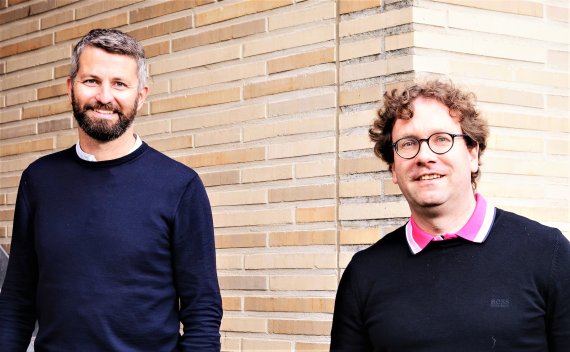
Club sports fall flat due to Corona, meetings with friends as well. How can we meaningfully & effectively increase physical activity time for children during Covid19?
Staying physically active in pandemic times is a real challenge and there is no single recipe that fits all families. As a general rule, sport and exercise in the great outdoors have a greater impact on mental wellbeing than sport at home.
Exercise for children and young people can, for example, be increased:
- Gamification, i.e. combining exercise with playful elements. Like a Sunday walk with geocaching, playing cops and robbers in the woods or even taking the football to the park.
- A concrete appointment with another child/teenager for sports.
- It's simple: leave the car at home and cycle for everyday journeys. At the same time, this promotes the children's independence.
- Microadventures such as a night hike in the woods, a bike ride with a picnic and camping stove, building a dam by a stream or spending the night in the garden shed.
- Set goals! Like: in three weeks I want to be able to skateboard all over the pump track, juggle three balls, or do handstands in the backyard.
... and does it have the same effects as club sports or being active in a group with friends?
Without the social aspect, sport cannot develop its developmental power to the usual extent. Nevertheless, sport alone, with the family, or with a single friend is an important health protection factor. People who do sport and move a lot feel better and are better placed to cope with crises.
Due to Corona, school sport has been reduced to a minimum - if at all. How important is sufficient exercise overall for learning and the learning development of our children?
Even if the underlying mechanisms are still unknown in many cases, sport certainly seems to have a positive influence on our learning abilities. Especially in early child development, exercise sets important impulses for brain development.
At least in animal studies, it has also been shown that exercise can have positive effects on brain function and the formation of new nerve cells.
In addition, sport improves the so-called executive functions. In other words, those functions that control and regulate our behaviour. One example is the ability to concentrate and control attention, which can be improved through sport and has a direct effect on the child's performance in class. And sport also trains our own impulse control. It is also important for learning success and social interaction in the school context.
Deteriorations in these areas in connection with the lack of exercise during shutdown phases have already been demonstrated in various national and international studies.
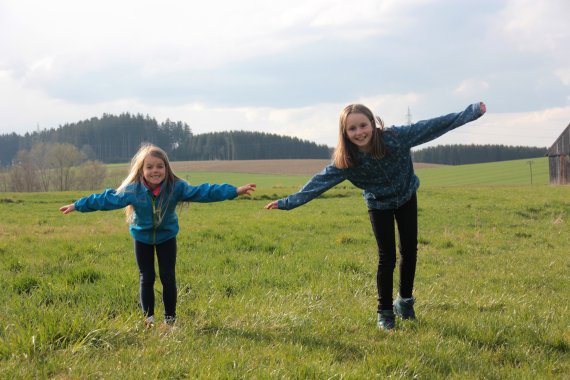
How can a lack of exercise in childhood affect future life as an adult?
Childhood and adolescence are characterized by a particularly high neuroplasticity. This also means that experiences made during this time are particularly clearly and lastingly imprinted in the brain.
Behavioural patterns also develop and become established in childhood and adolescence. We know that later movement behaviour as an adult is significantly influenced by the movement experiences in childhood and adolescence. Long periods of lack of exercise in this particularly sensitive phase of life can have a considerable influence on long-term health-related lifestyle.
Shouldn't sport and exercise thus be much more firmly anchored in our healthcare system?
Yes, sport and exercise have a high therapeutic value and are already part of everyday therapy in many medical facilities.
But even more important for most children and young people is the prevention of illness. This is where sport in schools and clubs plays a central role. Especially now, it is important to ensure that children participate in sports during the months of contact restriction, but also afterwards. The development of pandemic-compliant concepts is urgently needed here.
- ISPO awards
- Mountain sports
- Bike
- Design
- Retail
- Fitness
- Health
- ISPO Job Market
- ISPO Munich
- ISPO Shanghai
- Running
- Brands
- Sustainability
- Olympia
- OutDoor
- Promotion
- Sports Business
- ISPO Textrends
- Triathlon
- Water sports
- Winter sports
- eSports
- SportsTech
- OutDoor by ISPO
- Heroes
- Transformation
- Sport Fashion
- Urban Culture
- Challenges of a CEO
- Trade fairs
- Sports
- Find the Balance
- Product reviews
- Newsletter Exclusive Area
- Magazine

